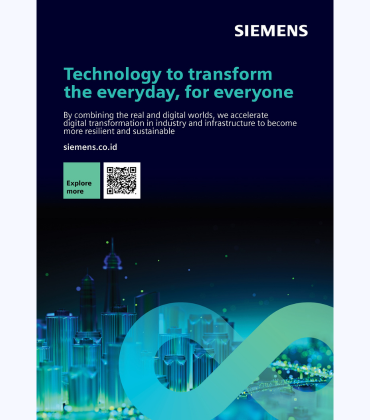.jpg)
The legal framework for real property and land ownership in Indonesia is laid down in the Basic Agrarian Law No. 5/1960 (Undang-Undang Pokok Agraria) and is supplemented by various implementing regulations. The Indonesian law knows several land titles which differ in the nature of the utilization granted, the duration of validity, the possibility to transfer and the mortgage of the land, as well as the proof in title.
The most important ones are discussed below:
-
Hak Milik (HM): This right is the most complete form of land ownership in Indonesia. It roughly translates to a freehold title in common-law jurisdictions. The title is registered with the National Land Agency and extends to all fixtures on the land. A Hak Milik is not bound by a time limit and may be transferred freely. Also, it can be made the subject of a security interest. It can only be held by Indonesians (meaning individuals of Indonesian nationality) and a few legal entities incorporated under Indonesian law, not including, however, an Indonesian PT.
-
Hak Guna Bangunan (HGB): This right entitles its owner to build and possess buildings on the land. The title is registered with the National Land Agency. It is freely transferable and can be used as a security. A Hak Guna Bangunan is issued for a period of 80 years. It is granted for 50 years at first but can be extended for an additional 30 years. The title can be held by Indonesians as well as legal entities incorporated under Indonesian law in Indonesia. That means it can also be held by a PT PMA as an Indonesian company founded or guided respectively by foreign investors.
-
Hak Guna Usaha (HGU): This right entitles its owner to cultivate state-owned land of a minimum size of five hectares. The title, which is registered with the National Land Agency, can be encumbered. A transfer to a third person, however, requires the permission of the state as the owner of the land. A Hak Guna Usaha is issued for a period of 95 years. It is granted for 60 years at first but can be extended for an additional 35 years. Hak Guna Bangunan can be held by Indonesians as well as legal entities incorporated under Indonesian law, including PT PMA companies.
-
Hak Pakai: This right grants the permission to use the land for a specific purpose that is negotiated in advance. The title is registered with the National Land Agency. However, it can only be transferred to a third party upon permission of the landowner. Furthermore, it can only be made the subject of a security interest in the form of a mortgage. This applies only if the right is granted in the form of a registered Hak Pakai over state-owned land.
A Hak Pakai is issued for a period of 70 years. It is granted for 45 years at first but can be extended for an additional 25 years. The title can be held by Indonesians and legal entities incorporated under Indonesian law as well as foreigners (meaning natural persons with a nationality other than the Indonesian) and legal entities incorporated under foreign law outside of Indonesia. Therefore, it can also be obtained by a foreign company wishing to establish a representative office in Indonesia or by a foreigner for the purpose of residency in Indonesia.
-
Hak Sewa: This right is substantially similar to the right of tenancy. It derives from a primary land title and is hence not registered with the National Land Agency. It is neither transferable nor can it be encumbered. It is valid for the time negotiated in the lease or rental contract. There are no other time limits fixed by law.
According to the above principles, the consequences for foreign ownership of land are as follows:
- Foreign investors who have formed a PT PMA, meaning a company incorporated under Indonesian law in Indonesia, can obtain and hold a Hak Guna Bangunan, a Hak Guna Usaha, a Hak Pakai and – as a secondary land title – a Hak Sewa. They are only banned from holding a Hak Milik which, at the time of publication, is the most unrestricted and complete land title available under Indonesian law. However, the PT PMA can only obtain and hold the amount of land that is needed for conducting its business and that which has been granted to the company by the BKPM, the Indonesian government agency in charge of foreign investment.
- Foreign companies, that are not organized in the form of a PT PMA (therefore does not possess the status of a legal entity incorporated under Indonesian law in Indonesia), but pursue business in the form of a Representative Office, can only obtain and hold a Hak Pakai and a Hak Sewa. They cannot hold a Hak Milik, a Hak Guna Bangunan or a Hak Guna Usaha.
- Finally, for the purpose of residence, foreign individuals can obtain and hold a Hak Pakai on state-owned land and a Hak Sewa. However, in order to obtain a Hak Pakai, the expatriate has to be domiciled in Indonesia and his stay has to be for the benefit of the country. These requirements are interpreted in favor of the expatriate buying the land though. Furthermore, the foreigner is limited to having only one residential home in Indonesia and is required to frequently use the land for residential purposes.
Foreign ownership of land is a highly sensitive matter in Indonesia. The laws and regulations on real property are very complex and their enforceability on the administrative level is quite difficult. Therefore, foreigners and foreign companies wishing to obtain land titles in Indonesia are strongly advised to seek professional help in these matters.
Legal


